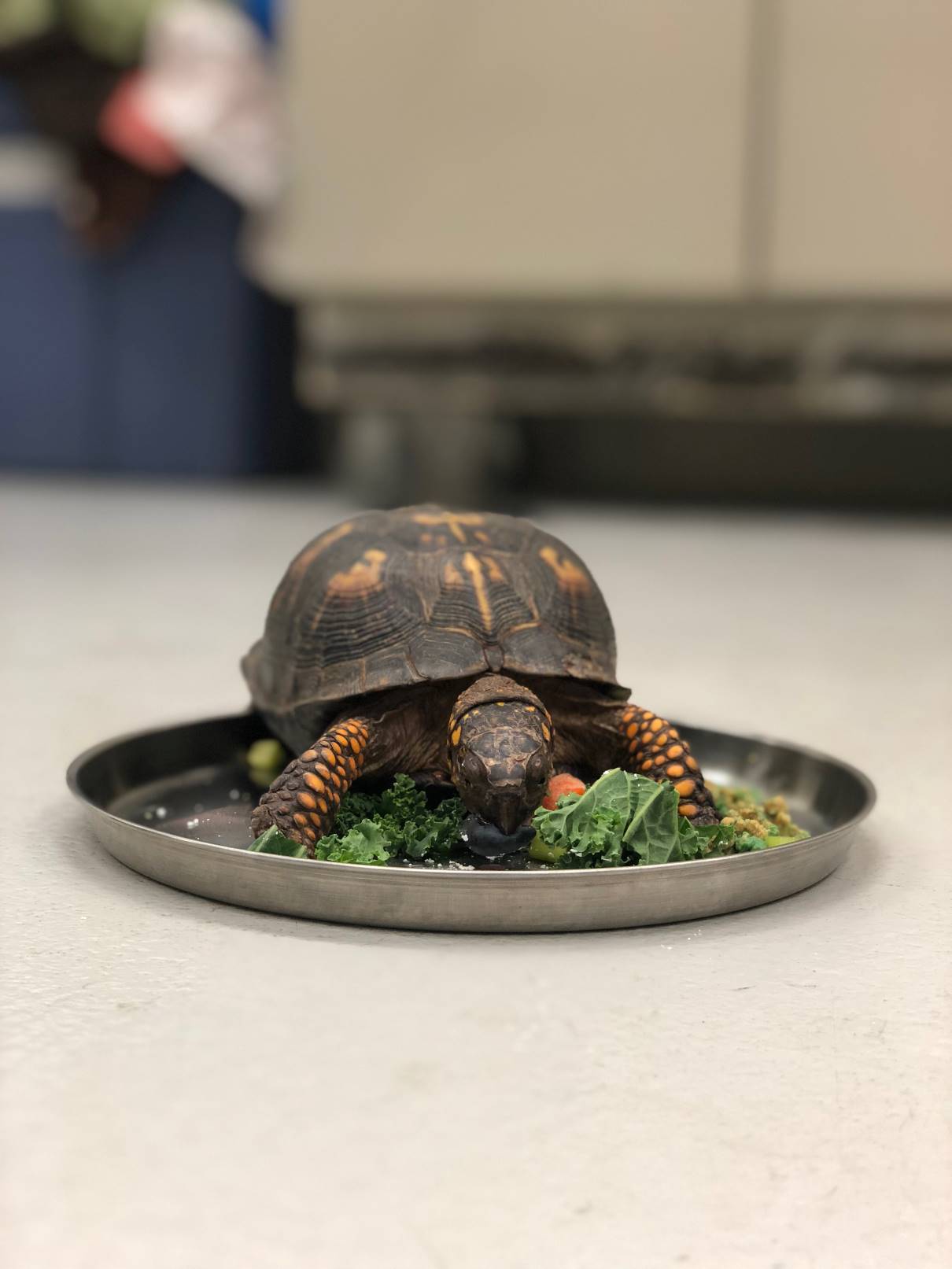In the middle of April, an adult male North American river otter (Lontra canadensis) presented to the Wildlife Medical Clinic after being found unresponsive on the side of the road. A Good Samaritan brought the otter to a nearby veterinarian who completed a full work-up. Unfortunately, no abnormalities showed up on bloodwork or radiographs, so the veterinary clinic transferred the patient to the WMC.

On initial physical examination, the only abnormal findings were slight dehydration and poor, inappropriate mentation. The otter was given subcutaneous fluids to help combat the dehydration and students administered a non-steroidal anti-inflammatory to help alleviate any inflammation that could have been causing the neurologic signs. The volunteers’ top differentials for his condition were infectious disease, toxin exposure, and trauma. After only 24 hours in the clinic, the otter’s mentation greatly improved; he ate all the food offered to him in his cage and he swam in a pool. A few days after intake, the otter was put under general anesthesia to have radiographs performed. Fortunately for the otter, there were no abnormal findings on his radiographs either.
After only 10 days in our care, he made a full recovery: he swam and moved around appropriately, he acted like a typical otter should act, and he “hunted” for live prey placed in his swimming pool. He was released by student volunteers at Kickapoo State Park and seemed to enjoy his new environment shortly after release. Although the volunteers at the WMC are still not completely sure what was causing this patient to be so down and out, everyone was more than relieved to see that he was feeling better and back to acting like a normal otter should!
—Ainsley Boyle, WMC student manager, 3rd-year veterinary student




